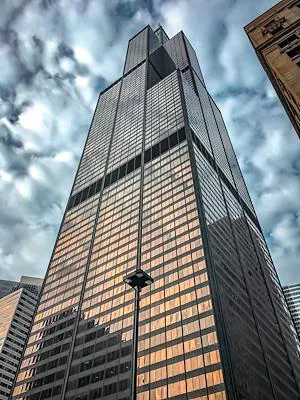Key Considerations on How Class Actions will be Processed with the Consumer Courts of the City of Buenos Aires
Read about the specific rules establishing how class actions will be processed with the Consumer Courts of the City of Buenos Aires following the issuance of the procedural code governing litigation in consumer relations in force since April 19, 2021.

The procedural code governing litigation in consumer relations includes rules with a significant practical impact on those who litigate in the City of Buenos Aires. This code establishes how consumer relation procedures will be carried out in the Consumer Courts of the City of Buenos Aires. It has been in force since April 19, 2021. And it will govern proceedings of new cases filed with Administrative, Tax and Consumer Courts until the Argentine Consumer Relations Courts are transferred from the Federal Administration to the Government of the City of Buenos Aires.
How is this relevant? Until now, there was no such thing as a proper procedure code for the purpose of processing consumer cases in the local forum of the City of Buenos Aires.
The new code includes a chapter on specific regulations concerning class action procedures and embodies the first systematic regulation of these types of procedures in Argentina. The code is complemented by provisions previously established by Consumer Protection Law No. 24,240 which already regulated those matters, i.e. determining the scope of legal assistance to consumers or pinpointing who has legal standing to sue.
Below, we have summarized the main aspects of these brand-new regulations.
Mediation Proceedings. Argentina has a tradition of preliminary mandatory mediation proceedings. However, this code contains no such requirement for filing a class action suit.
Legal Standing to Sue. Affected groups who demonstrate a reasonable interest, the ombudsman and consumers’ rights associations authorized by the enforcement authority can all file these lawsuits. In addition, the enforcement authority and the Office of the Prosecutor General also has standing to sue when the claim is grounded on diffuse collective rights.
Waived Court Expenses. Plaintiffs who have filed class actions are automatically granted the right to proceed in forma pauperis.
Involvement of the Office of the Prosecutor General. The Office of the Prosecutor General is required to participate in class actions as the “gatekeepers” of the Law. In fact, it even has standing to sue in the procedure.
Admissibility Requirements. There are two types of conditions:
- Generic. Requirements pertaining to number of plaintiffs, shared interest and grounds to sue apply. Also, adequate representation and any difficulties to file the case individually must be demonstrated.
- Specific. These apply to cases in which plaintiffs claim damages to individual homogeneous interests. Also, in these cases, plaintiffs are required to (i) demonstrate that a class action suit is the most efficient available procedure and (ii) demonstrate that collective interests outweigh individual ones.
Adequate Representation Requirement. Should the class action procedure be filed by an individual consumer or a consumer association, the court must verify (throughout the whole trial) that the adequate representation requirement is being met. The court must monitor the representative’s past performance history and record and verify that their interests align with those of the class. Additionally, potential conflicts of interests must be weighted.
Public Notice. If a class action is filed, it must be duly notified, even to those individuals who want to opt out. Hence, parties with legal standing to sue are required to draft a notice and demonstrate that they have the resources to ultimately serve all relevant notices, without prejudice to any free and public options available.
Res judicata. Class actions judgments have implications for the whole class unless the claim is rejected. However, even then, the plaintiffs may still file for a different procedure on the same grounds as the rejected claim so long as there is new evidence on which to ground the merits of the case.
This insight is a brief comment on legal news in Argentina; it does not purport to be an exhaustive analysis or to provide legal advice.